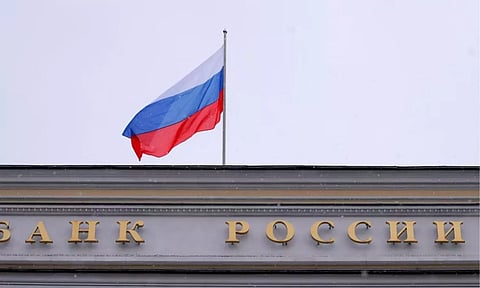

NEW DELHI: What can be the outcome of the Ukraine conflict? Will Russia manage to keep its territorial gains as a buffer area to keep Ukraine down and NATO away from its territory proper, or conversely, have to return bloodied to within its own borders with a vengeful enemy remaining across the frontier?
The answer depends on the resiliency, but not only of the two sides to the conflict.
In Ukraine's case, it hinges much on the willingness, ability, and appetite of its European and American backers to last the course with weapons and funding.
But the internecine political warfare in the US over government spending - which saw funds for Ukraine axed in the stop-gap spending agreement passed by Congress - and incipient but discernible discontent in Europe as costs rise and dissenters like Hungary get emboldened with the victory of like-minded colleagues, like Robert Fico in Slovakia, shows the support situation is not as determinate as Kiev would like.
As per CNN, of all aid flowing to Ukraine, 47 per cent is from the US, 39 per cent from the EU, and the remaining from others including the UK and Canada.
And then, the moot question is whether the Americans and the Europeans will continue to remain committed to Ukraine, and have a credible strategic end in their viewsight.
Afghanistan and Iraq are some recent examples where their huge investment in men and money failed to leave either place better off once the initial - and fleeting - period of euphoric victory ended. It may be argued that unlike these two, the collective West does not have boots on the ground, or very minimal and well-concealed ones - if it does, in Ukraine, but the principle is largely the same.
On the other hand, will Russia manage to keep up its end in the battle, or will slowly succumb to what is perceived as its increasing isolation on the global stage and growing anti-war sentiment - as per the view of one section (mainly Western and allied) of the media and allied discourse?
It is difficult to offer any valid prognosis of the situation considering the fickle unpredictability of human affairs and the presence of "known unknowns" and "unknown unknowns", as colourfully described by then US Defense Secretary Donald Rumsfeld in 2002 ahead of the US (mis)adventure in Iraq.
But one yardstick to gauge the situation may be the universal Russian sentiment - present through Tsarist, Communist, and modern times - of a markedly strong disinclination to have hostile powers or alliances near their country's borders, a demonstrated capability to go to extreme extents to deter enemies and invaders and endure whatever privations this objective may entail, and in such moments of peril, subsume political and other differences to come together against an external enemy.
Napoleon and Hitler learned the lesson the hard way. After their initial successes, it was the limitless Russian terrain, unforgiving weather, and the Russian obduracy that defeated them and their Russian foe, after being chased hard and long as it traded space for time - even including abandoning Moscow (to Napoleon), swung back powerfully and launched a massive counterattack that chased both would-be conquerors back to their capitals.
However, it might be not as well known outside the circle of historians and Russian affairs experts that Napoleon and Hitler were not the best examples when it comes to prevailing against Russia, as the only power that only successfully controlled Moscow - albeit for a brief time - was the Poles -and that too in the early 17th century. The Swedes and Turks did prevail sometimes against the Russians, as did the Mongols earlier but mostly indirectly, and the Japanese in 1905 - but at one periphery.
Even after the 1917 Revolution, at least 6 powerful nations - including the UK, the US, and Imperial Japan, flush after their World War I victory, could not change the course of the Russian Civil War, following the downfall of the Romanovs and the emergence of Lenin's Bolsheviks, and all had to eventually withdraw without any successes.
To be fair, historical precedent cannot be applied unthinkably to the present, given that circumstances change with time - and President Vladimir Putin is not a 21st-century version of Tsar Alexander 1 or Generalissimo Josef Stalin, but still, it can offer an illustrative indication of national character, intention, and psyche.
And then, the West, or actually the EU nations, with their rather understandable policies of lumping all Russians - pro and anti-war - together with the stringent raft of sanctions, the withdrawal of businesses, and now, the diktats of seizing cars, and even personal effects, of Russian visitors, seems geared to brand all Russians with the same brush and prevent a significant peace constituency from coalescing there.
Only time will tell what may happen.